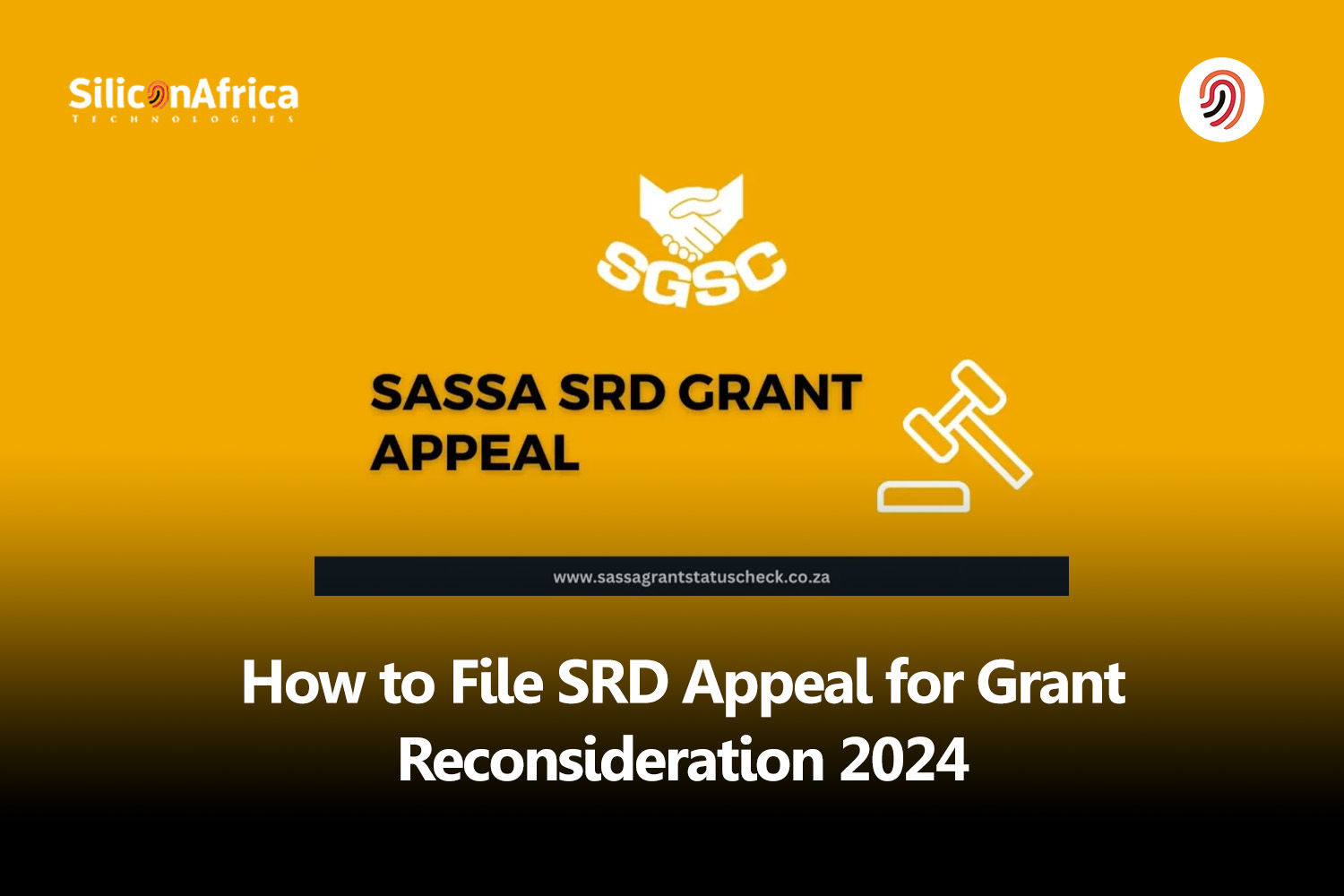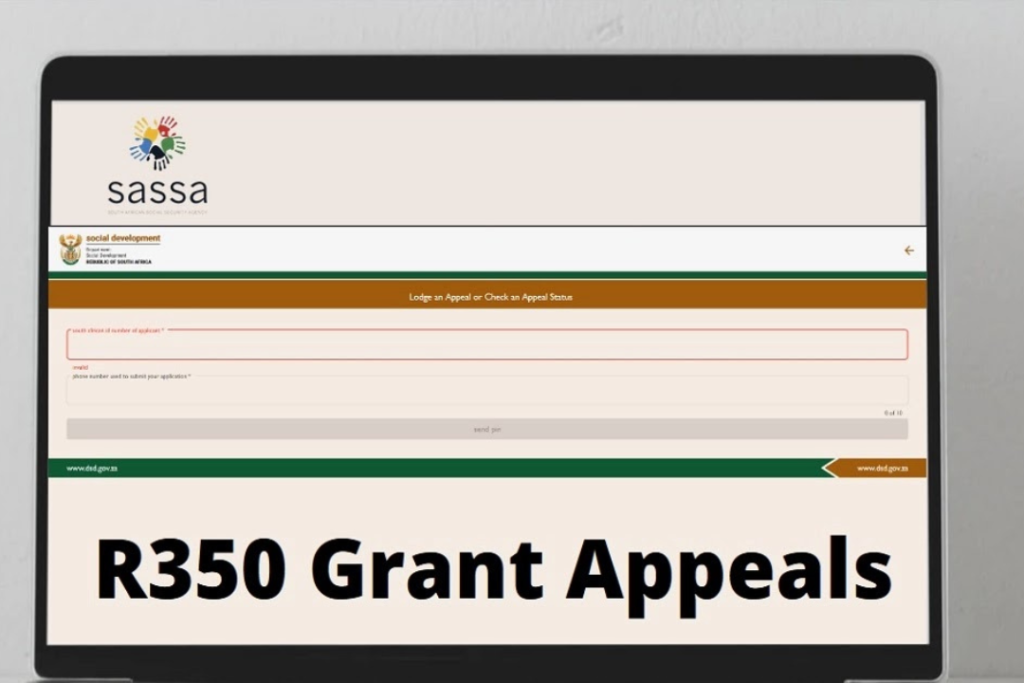Physical Address
60 Ekwema Cres, Layout 460281, Imo
Physical Address
60 Ekwema Cres, Layout 460281, Imo

In the journey to secure financial aid, encountering a setback with your Social Relief of Distress (SRD) grant application can feel disheartening. However, hope is not lost! If your SRD application for 2024 was unsuccessful, the SRD appeal process is your next step toward getting a reconsideration.
SRD appeal is essentially your chance to request a second review of your application. Perhaps there was a misunderstanding or an error; an appeal gives you the platform to clarify.
Filing an SRD appeal may seem daunting, but it’s more straightforward than you might think. But how exactly do you navigate this process? Don’t worry, we’re here to help you through each step.
By understanding the key components involved, including deadlines, necessary documents, and where to submit your appeal, you’ll be better positioned to navigate this process. Let’s dive into how to file an SRD appeal and move one step closer to obtaining the grant you need.
An SRD appeal is a process for when you feel your application for an SRD grant, which is a kind of financial help for those who need it most, has been wrongly denied. If you’ve applied for an SRD grant and got a ‘no,’ you have the option to challenge this decision through what is known as an SRD appeal.
The SRD appeal process is pretty straightforward, giving you a second chance to explain why you need the grant. Filling out an SRD appeal means submitting extra details or clarifications to show why you should receive the help.
It’s like saying, I think there’s been a mistake, and here’s why I need the support. This process is there to ensure that everyone gets a fair evaluation and that no one in need is unfairly left out.
Receiving a denial for an SRD grant can be frustrating, but knowing the usual reasons will help you plan a viable appeal. Here are some common obstacles and how to address them:
One of the most common slip-ups in an SRD application is submitting incorrect or incomplete information. Perhaps you accidentally mistyped your ID number or left a section blank. Such errors can automatically flag your application for denial.
How to Address: Double-check your application before submission. If you’ve already submitted and got denied, carefully review the information you provided. When filing an SRD appeal, correct any mistakes and make sure to fill out all required fields.
SASSA has stringent eligibility conditions, including citizenship, domicile, and age. Failure to achieve these conditions results in denial.
How to Address: Carefully review the eligibility criteria. If you believe you meet all of the standards, include them in your appeal and offer supporting documentation.
The SRD grant is specifically designed for individuals or families who are in dire financial straits. If the authorities determine that your income, or the combined income of your household, exceeds the set threshold, your application might be denied.
How to Address: Review the income criteria again. If you believe there has been a misunderstanding or mistake regarding your income assessment, mention this in your SRD appeal. Provide supporting documents, if necessary, to prove your financial situation warrants the grant.
If you or someone in your household is already receiving another type of social grant, your SRD grant application could be denied. The system aims to distribute resources to as many distinct beneficiaries as possible.
How to Address: Ensure clarity about which members of your household are receiving other types of grants, and highlight in your SRD appeal if there has been a mix-up or misunderstanding regarding this aspect.
Problems with banking details—whether they’re incorrect, belong to someone else, or if there’s a failure in the verification process—can lead to an SRD grant denial.
How to Address: When filling out an SRD appeal, make sure your banking details are correct and clearly stated. If you’ve changed banks or accounts recently, update this information promptly.
Errors in online applications or SASSA systems can result in discriminatory denials.
How to Address: Contact SASSA immediately and report the technical issue—ask for confirmation of receipt of your online application or send a hardcopy appeal form as a backup.
Addressing these typical denial reasons can considerably boost your chances of winning a SASSA SRD grant appeal. Do not give up; fight for your right to essential financial assistance!
Before filing an appeal, you must ensure that your information is up-to-date in the SASSA Portal.
Before appealing, you should double-check your information because any mistakes could result in your appeal being dismissed.

If you’re preparing to appeal in 2024 or beyond, here are the steps you should follow to ensure that your SRD grant reconsideration appeal is filed correctly and efficiently.
Visit the SASSA SRD Appeal Website.
If you already have an SASSA account, sign in using your username and password and click “Sign In.” If you are a new user, click “Register” and follow the directions to create an account.
Navigate to the appeals area and enter your 13-digit African ID card number as well as the mobile number you registered with. Then select “send pin“.
You will be sent a verification SMS with a PIN to your registered cellphone number. To access the appeal portion of the website, enter the pin.
When you log in to the appeals section, you will be able to view all of the monthly data. You must select the month for which you want to file an appeal.
It is important to note that you must file an appeal for each month in which your SRD grant was denied. The Independent Tribunal will not hear appeals for numerous months in one application.
After selecting a month, you will be prompted to submit documents proving your eligibility for the SRD grant, as well as a clear, short explanation. To enhance your case, attach all essential documents, such as bank statements from the previous six months, residential evidence, identity certificates, and other supporting documents.
Simply click the submit button once you’ve attached all of the appropriate paperwork. Your application will be sent to an independent tribunal and the decision will be communicated to you by an independent tribunal within 60 to 90 days.
Appealing an SRD grant can be stressful, but understanding how to follow your progress gives you confidence and helps you prevent delays. Here’s how to stay updated during the process:
An appeal for the SRD grant could lead to the following outcomes:
If your appeal is successful, you will be advised of the actions required to receive the grant payout. This indicates that SASSA has evaluated and accepted your appeal, and you will now be eligible for the funding. To receive the grant money if your appeal is successful, you must confirm that your contact information is correct on the SRD platform.
If your appeal is denied, you will not receive the grant payment, and you may be required to evaluate the reasons for the rejection and take additional actions to remedy any flaws with your application. SASSA will explain the grounds for refusal, helping you to understand the issues that must be solved.
You must follow up with SASSA to ensure that your application is given the attention it deserves and that any concerns that led to the rejection are addressed. Addressing any concerns as soon as possible can increase your chances of having your application reassessed and winning the grant in the future.
If your appeal is likewise denied, there is no other way to appeal to SASSA or ITSAA. The only alternative left is to take the case to the High Court for judicial review.
You should only use this option if you are confident that you meet all of the eligibility requirements but your application was rejected incorrectly.
Rules and processes for social grants, including the SRD grant, can change. Stay informed about any changes by regularly checking the SASSA website or contacting their offices. Persistence is key in these situations. Don’t be discouraged by setbacks and continue advocating for yourself.
Contact the Department of Social Development or ITSAA for appeal inquiries at the provided details. If you have any questions about the SRD grant, please contact your nearest office.
Filing an SRD appeal for grant reconsideration in 2024 is a crucial step if you feel your SRD application was wrongly declined. Understanding the SRD appeal process is your first step toward potentially having your application reviewed and accepted.
Begin by gathering any new or missing information that supports your eligibility for the SRD grant. Next, follow the official guidelines for filling an SRD appeal, ensuring all required details are accurately provided. It’s important to do this within the given time frame.
Although the process may seem daunting, taking these steps could lead to a successful reconsideration of your SRD grant application, so don’t hesitate to appeal if you believe an error has been made.
Any applicant who has received a negative outcome on their application for an SRD grant and believes the decision is incorrect due to overlooked or new information can file an appeal.
After submitting your appeal, it will be reviewed by the Appeals Tribunal. You should receive communication about the status of your appeal or any further actions required from you.
For assistance with your appeal, consider reaching out to SASSA directly through their customer service channels, visiting a local SASSA office, or consulting community legal aid services for guidance.
If your appeal is denied and you believe the decision was unjust, you can look for further instructions on the official SRD grant website. Some jurisdictions might allow for a higher level of appeal or review by a different committee.
The Independent Tribunal for Social Assistance typically responds to your request within 60 to 90 days. Just so you know, you will receive an SMS confirmation outlining the results of your appeal.